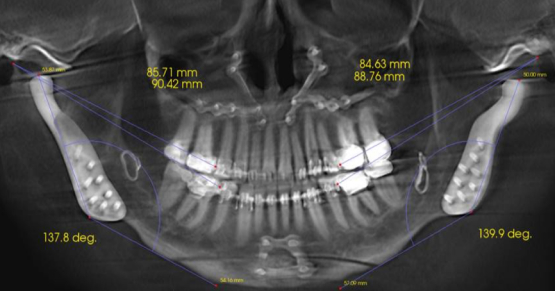The 3 Accepts: Driving Case Acceptance in Urgent Times
Dental practices, like practically all businesses right now, are facing uncertain times. But one thing we can be certain of is that during the height of this crisis — and even for some time after the worst has seemingly passed — you’re going to be seeing fewer patients, and many of those patients you do see will be dealing with new economic pressures.
Even patients who are economically secure will likely have some psychological resistance when it comes to discretionary spending. That means that you’re going to have to slow down with each patient, to help them make good choices and see the value of getting the dentistry done.
In this new reality, when we think of case acceptance, we have to go beyond thinking in terms of percentages and counting the “yes” responses, as we traditionally have. We have to think more in terms of: How many patients did we slow down with and really help understand the value of proposed treatment?
To do that, I suggest focusing on what I call the “three accepts,” which are the three things a patient must accept before you get that final “yes.”
The patient must accept their condition
This may seem obvious, but as with each of these three accepts, it’s all about the level at which patients are engaging. So when I say “the patient accepts their condition,” I don’t just mean that they nodded along as you explained. I mean they really get it at a deep level that inspires them to take ownership of their condition.
This is a vital first step on the path to case acceptance, and it’s why Spear created a library of Patient Education videos that explain common conditions using clear, simple language and compelling visuals. You can pause them, make annotations on them, and even forward them to patients so they can view them later with family.
The videos have been proven to give more patients greater confidence in understanding and accepting treatment plans. You should familiarize yourself with them, if you haven’t already, and have your team members use their downtime to watch them. And don’t forget the introductory online lessons that give you specific advice on how to use Patient Education videos most effectively.
The patient must accept the need for action
Once a patient has accepted their condition, the next step is to get them to move forward with treatment, and in many cases that involves getting the patient to understand that dentistry today has come a long way. Many patients are still fearful of dental treatment, so it is important they really understand the kinds of materials, technologies, and competencies you provide.
I saw this unfold with my own mother, who was reluctant to get necessary dental treatment done. It wasn’t until her dentist took the time to carefully explain every step of the procedure that she was able to overcome her resistance. She had developed a strong trust in him, and the way he was able to communicate and reassure her about what to expect made all the difference.
Patient Education videos that describe the patient’s condition are helpful with this step as well, because they usually include a component that shows the patient what can occur if the condition goes untreated. The Patient Education platform also provides videos specifically on COVID-19 safety, for first-visit patients and other key issues. There are supplemental videos that outline the home care component where necessary. Making yourself familiar with these and learning how to present these tools to the patient is important in getting patients motivated to proceed with treatment.
The patient must accept their financial obligation
They fully understand their current condition. They want to go forward with treatment. Now the final accept on the path to case acceptance is accepting the need to pay for it. And let’s face it, the current crisis we’re going through is likely to have far-reaching economic implications for a lot of people, meaning this third accept is going to be a stumbling block for many patients.
That’s why you’re going to need to get really good at not only creating value for great care but also at helping patients find ways to fund it. This may mean reexamining some of your policies on financial arrangements, how you work with third-party lenders, or even perhaps offering in-house lending.
Remember, Spear offers an online course for members on the considerations involved with financial arrangements in the practice. I strongly recommend you watch it and use it as a guide to help you strategize ways to help your patients afford the care they need at a time when they are likely to need that help. If you’re a Spear Practice Solutions member, you also have your practice dashboard and access to deeper, practice-specific information about making financial arrangements with patients. Now is the time to talk with your consultant about how to adjust your strategies going forward!
Finally, just a reminder that a crisis like this is a test of leadership. As practice leaders, you should remain optimistic and focused. Schedule regular team meetings, even if they’re virtual meetings, where you focus on reviewing those Patient Education videos and how to present them, or the financial arrangements course, or any number of other courses you’ve been meaning to get to.
If you use this time in a positive way, working as a team to develop your education and sharpen your skills, you’ll be well positioned to emerge from the crisis stronger than ever and ready to reach new levels of excellence. And we at Spear will be with you in this process. Our faculty and the teams behind them will be continually developing important new content to support you through this turbulent time.
We may have to stay physically apart for a while, but we will be by your side in a virtual way like never before. And we will get through this together!
VIRTUAL SEMINARS
The Campus CE Experience
– Online, Anywhere
Spear Virtual Seminars give you versatility to refine your clinical skills following the same lessons that you would at the Spear Campus in Scottsdale — but from anywhere, as a safe online alternative to large-attendance campus events. Ask an advisor how your practice can take advantage of this new CE option.

By: Imtiaz Manji
Date: June 12, 2020
Featured Digest articles
Insights and advice from Spear Faculty and industry experts



